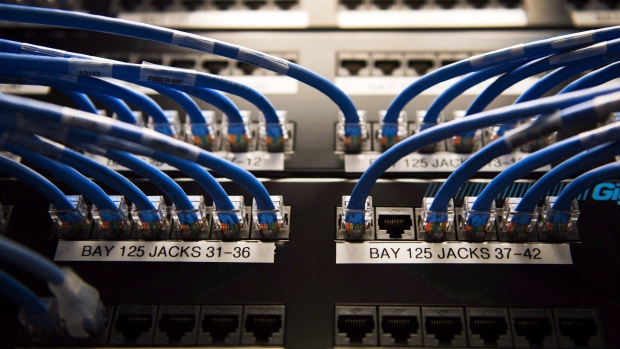Oct 26, 2018
Bell tells inquiry that it does a good job but aims for better sales practices
, The Canadian Press

Bell Canada acknowledged Friday that it needs to improve when selling its television, internet and wireless services but insisted that the percentage of problems it experiences is small and doesn't reflect its own code of conduct.
Rob Malcolmson, who led a Bell delegation to the Canadian Radio-television and Telecommunications Commission, said the company has a stringent code of conduct for employees and contractors.
But the senior vice-president of regulatory affairs for Bell's parent BCE Inc. acknowledged that “more can be done to strengthen the confidence and trust Canadian consumers have in our industry.”
The Montreal-based company - which operates the Virgin Mobile and Lucky wireless brands in addition to various Bell services - was named in 346 of about 1,300 complaints filed as part of the CRTC's inquiry.
“We did a deeper dive on those, and 201 fell into the category 'price not as expected' . . . and 78 fell into the category of potentially aggressive sales tactics,” Malcolmson said.
“So we looked at those and we said, that seems to be the core issue and asked: How do we fix it?”
Bell's proposed solution is to have several measures required of the industry as a whole - including allowing a customer to terminate a new service within 30 days of installation, without an early termination fee.
Bell also says all service should provide order confirmations, written in plain language, within 24 hours of an order being placed.
Rizwan Jamal, president of Bell Residential Services, said that if customers don't agree after reviewing the written material “they can walk away with no termination penalties.”
Several advocacy groups for consumers, seniors, ethnic groups and people with disabilities have proposed numerous ways to impose new rules or standards on the telecommunications industry.
But many of the companies that sell the products insisted during a week of proceedings that industry-wide rules and regulations aren't necessary - because most of the complaints are lodged against only a few large players and because too many rules would stifle legitimate competition.
Earlier, Shaw Communications Inc. said the federal regulator can best protect Canadians from problem sales practices by banning telecom companies from using outside contractors to do their door-to-door sales.
A delegation from the Calgary-based television, internet and wireless services company said that evidence doesn't show that misleading or aggressive sales practices are an industry-wide problem - just concentrated in a few large companies.
Shaw senior vice-president Paul Cowling told CRTC commissioners that they should take “targeted, focused” actions that don't penalize smaller competitors or those that have good practices.
Cowling said that door-to-door sales by non-employees under contract have resulted in the most serious practices revealed by media reports, the industry's complaint resolution mechanism and the CRTC's own hearing process.
“Focusing a recommendation or remedy on door-to-door sales would address the most significant area of risk and consumer vulnerability,” Cowling said. “We have proposed a prohibition on third-party sales.”
Like its competitors, Shaw does uses door-to-door sales but they are by employees rather than outside contractors.
BNN Bloomberg is a division of Bell Media, which is owned by BCE.







